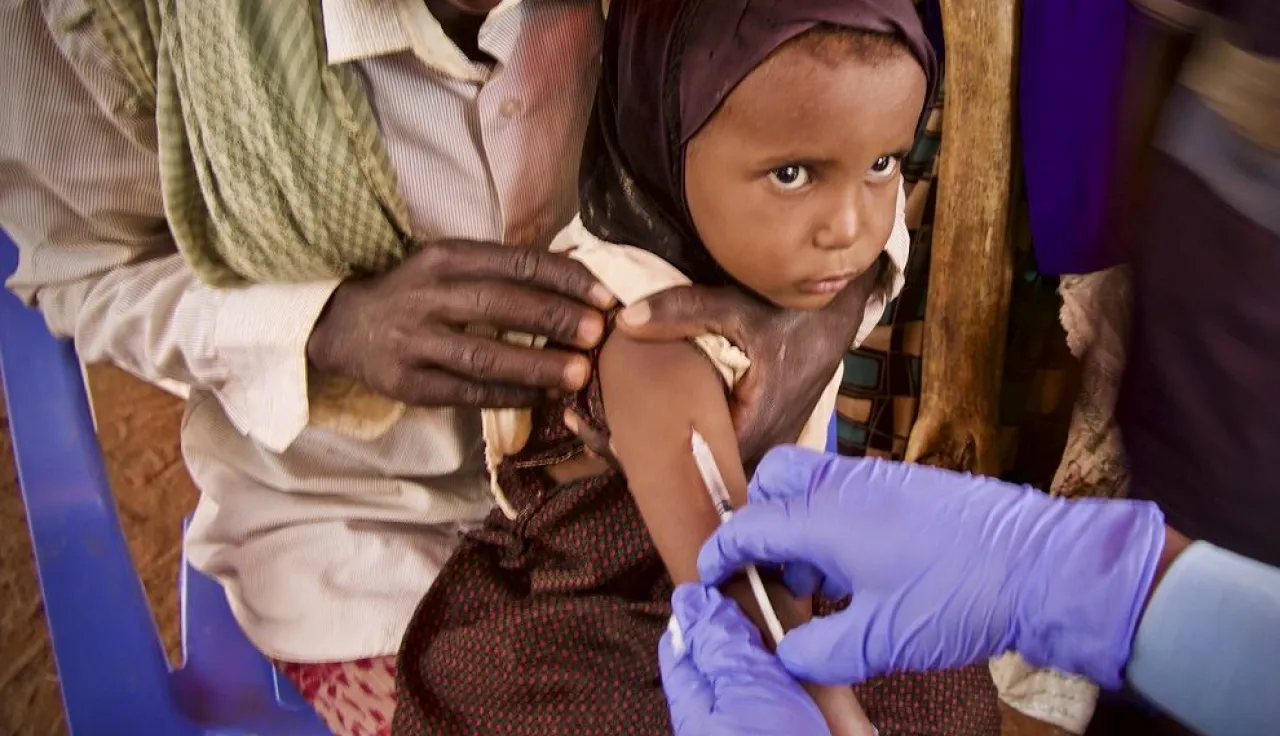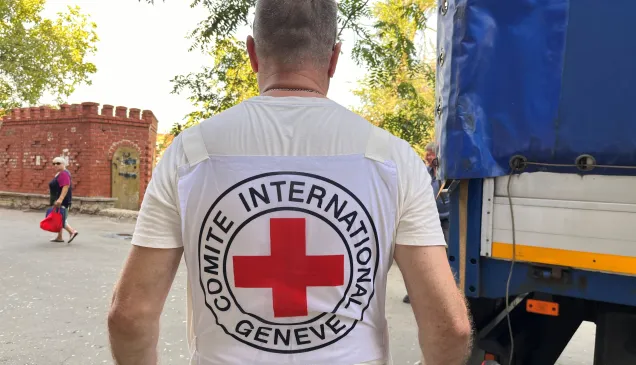Mr. President, Members of the Council, Colleagues,
Thank you for the opportunity to address you today and to the UK for spotlighting the importance of vaccination in conflict settings through Resolution 2565 as well as continuing the Council's focus on what needs to be done.
Mr. President,
COVID-19 has killed more than 6 million people globally – with the number probably much higher as these are only the officially reported figures. The successes in the development and production of vaccines mean that many countries are starting to regain a sense of normalcy. However, to end the pandemic, vaccination needs to occur everywhere – and this is not the case in conflict-affected areas.
In conflict-settings, health systems torn apart by conflict are less able to contain the spread of diseases across frontlines and international borders. Vaccination and other health activities in such contexts are incredibly difficult to carry out. Furthermore, many people in conflict settings are overlooked in public health responses, including people displaced, detained, or living in areas controlled by non-state armed groups.
Moreover, in areas affected by armed conflict, COVID-19 is not the most pressing issue people face as the most basic needs – such as food, water, and shelter – are often not covered. Even if the health system continues to function, its focus turns from general health care, including vaccination, to treating war-wounded patients and keeping the core of the system functioning. This can happen in any conflict setting.
Mr. President,
The good news is that, as the supply of vaccine doses grows, the potential to get jabs in arms grows too. To achieve this in conflict settings, the International Committee of the Red Cross presents three asks to this Council, UN Member States, and conflict-affected countries:
First, ensure that International Humanitarian Law is respected
Under international humanitarian law, hospitals and other medical facilities as well as medical personnel – including those administering vaccines – are specifically protected from attacks. And where states cannot meet the basic needs of populations, they must allow impartial humanitarian organizations to conduct health activities – including vaccination.
These obligations are reaffirmed in Resolution 2565. We call on all parties to conflict to implement them in good faith as attacks on healthcare have a profound effect on people's lives and future.
Second, integrate COVID-19 vaccinations into a broader health strategy and in tandem strengthen the health system
We have seen vaccines expire on airport tarmacs in Afghanistan, Nigeria, South Sudan, and several other places. Some of these vaccines were wasted because they arrived with too short expiry dates. Others, because the receiving countries' health systems were not ready to distribute them. Countries need a degree of capacity to deliver vaccines.
The COVID-19 pandemic offers an opportune moment to strengthen the health systems in conflict-affected countries. We need to consider how COVID-19 vaccinations can be routinized where possible and integrated with other health services that are prioritized during times of conflict.
This doesn't mean we have to do everything, but we must invest in country preparedness and fortify the building blocks of the health system that support immunizations – and which in turn support the response to other pre-existing health needs. Critically, this investment can help address renewed outbreaks of other highly contagious and lethal diseases – which are occurring today, for example with measles in Afghanistan and polio in the Democratic Republic of Congo.
One strategy to address this is to invest in developing health workers' capacity and skillsets – as well as improving key components of service delivery, such as local supply chains and infrastructure. This is both critical and doable in contexts affected by armed conflict. The ICRC, for example, supported more than 600 health facilities in Iraq in 2021 which allowed the administration of over 14 million doses of COVID-19 vaccines.
Third, involve the community in vaccination activities and adequately resource community-engagement
Done well, effective community engagement is a force multiplier. It enhances the safety of frontline health workers and expands the reach of vaccination and other health efforts. Community involvement allows the community to identify pressing needs, take ownership, and spread the word about health-related programs.
For example, the ICRC established a network of Community Health Committees attached to 28 Primary Health Care Centres in Somalia and 16 in South Sudan. Many representatives are women from the community who can play an important role in the control and prevention of the COVID-19 pandemic and other diseases.
However, done poorly, ineffective or lack of community engagement can undermine public trust in vaccinations and government-run programs more broadly, with ramifications beyond this pandemic. We have witnessed the effects of distrust in West Africa with Ebola and now in many countries with COVID-19. Even if communities can be reached, people will not accept being vaccinated if they do not trust those administering the vaccine, and they do not see other pressing priorities being addressed.
For the ICRC and the wider Red Cross and Red Crescent Movement, community engagement ensures that communities' insights are an integral part of the design and delivery of programs, and that people have accurate information about vaccines and public health interventions, so they can make informed choices for themselves. Beyond vaccination, the ICRC strives to build trust with communities and parties to conflict concerning all its humanitarian activities.
The ICRC – as part of the Red Cross and Red Crescent Movement – will continue to play its part.
The ICRC helped to administer more than 21 million doses of COVID-19 vaccines last year in areas impacted by armed conflict.
And we continue our offer of services to support states to implement their vaccination plans, to support National Red Cross and Red Crescent Societies as humanitarian auxiliaries, and to act as a neutral intermediary to facilitate access to vaccines and vaccination activities in hard-to-reach areas.
Equitable access to COVID-19 vaccination is a humanitarian imperative. Our collective recovery depends on it, because the longer COVID circulates anywhere, the longer it remains a threat everywhere.
Thank you.




